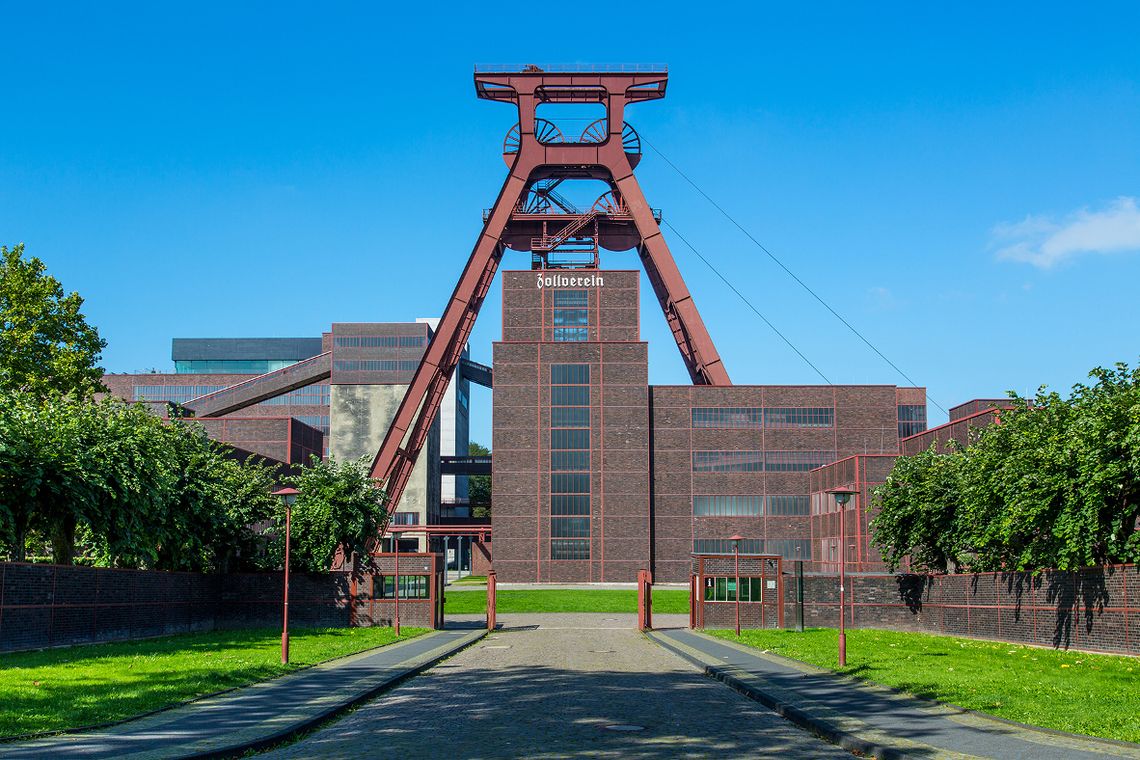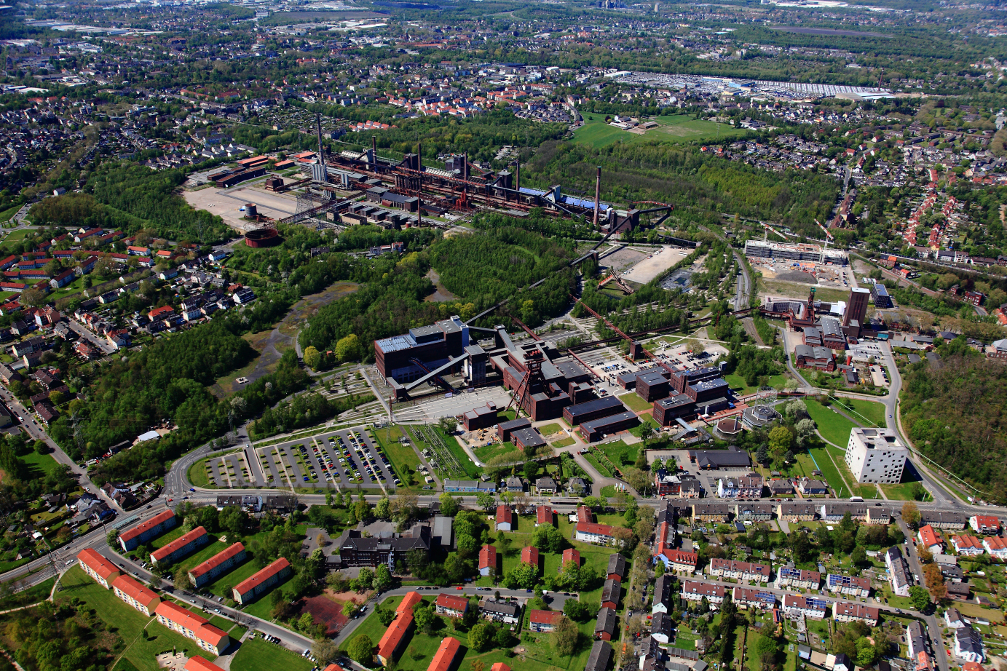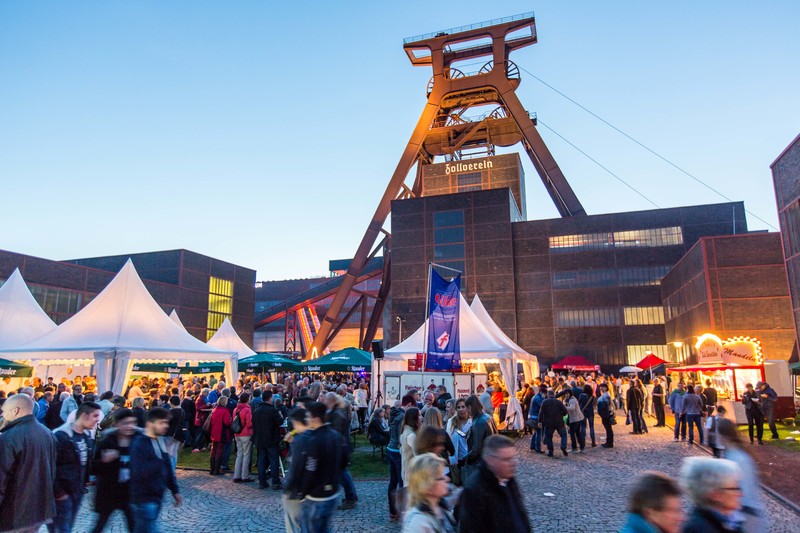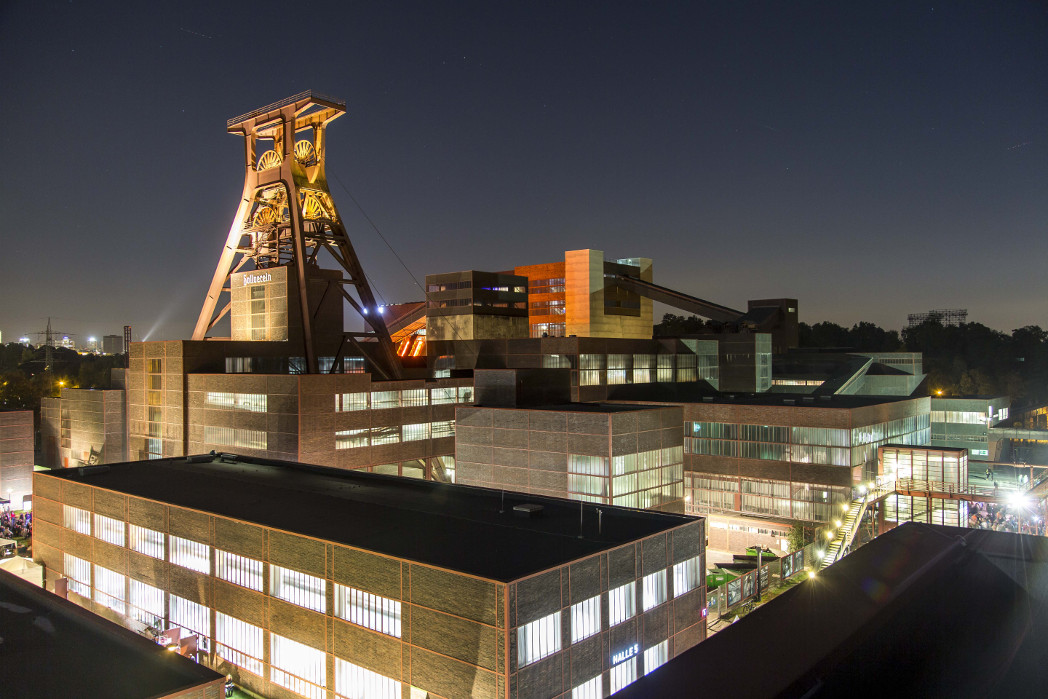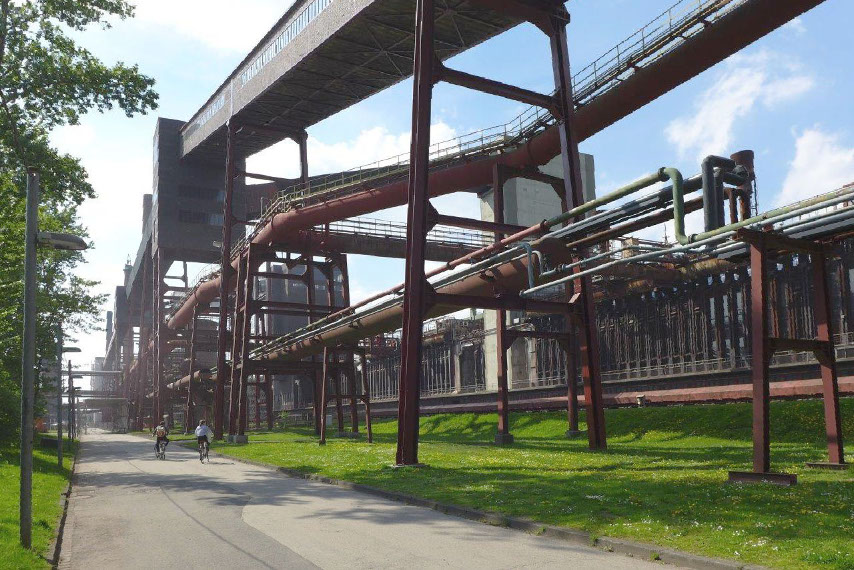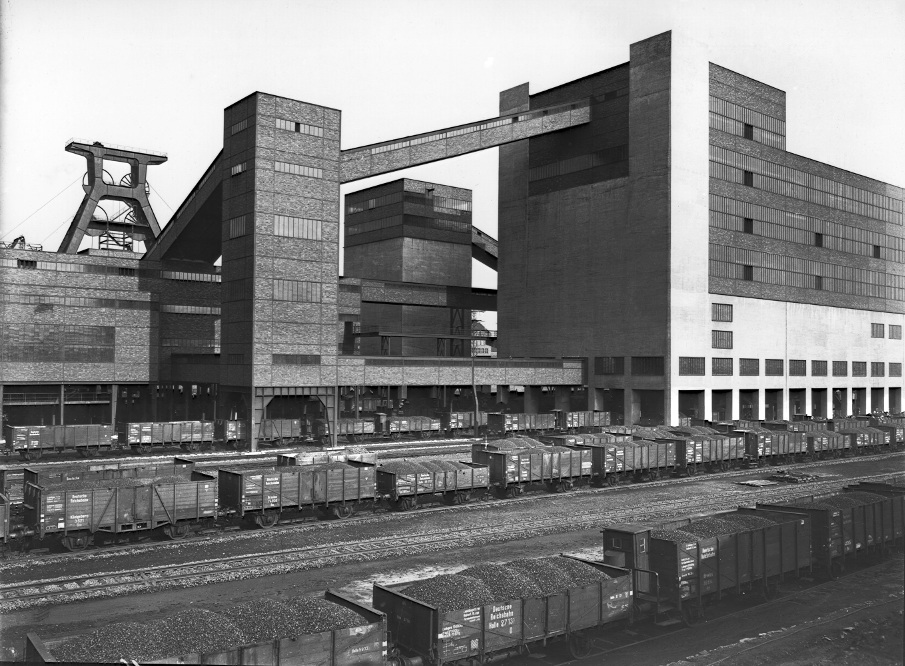UNESCO World Heritage Site Zollverein
The former Zollverein coal mine, Germany, has undergone a process of transformation for more than 30 years, and was designated a UNESCO World Heritage Site in 2001. Zollverein represents a complete example of coal mining infrastructure, providing evidence of the 150-year evolution and decline of this essential industry in the Ruhr region. In 1847, Franz Haniel started mining at Zollverein, and the most productive period occurred in the late 1930s. Coal extraction at Zollverein ceased in 1986, followed by the closure of the coking plant in 1993.
Outstanding Universal Value
All remaining mine shafts and buildings are designated as monuments in the German understanding (equivalent to listed buildings), but only parts of them are included in the 2001 World Heritage classification, including Shaft Site 1/2/8, the central Shaft Site XII, constructed in 1928–1932, and the coking plant, in total a site of around 100 ha. This site provides evidence not only of the crucial period in the development of heavy industries (criterion iii of the UNESCO World Heritage nomination), but Shaft XII and the coking plant are also of outstanding universal value due to their modern architecture by F. Schupp and M. Kremmer, which refers to the design approach called Neue Sachlichkeit (New Objectivity) and displays a masterly combination of form and function (criterion ii of the UNESCO World Heritage nomination).
Transformation of Zollverein
In the 1990s, Zollverein was the anchor project of the International Building Exhibition (IBA) Emscher Park and remains an anchor project of the European Route of Industrial Heritage (ERIH). Via guided tours of the Denkmalpfad (Monument Path), the visitor centre and the Ruhr Museum offer access and information to visitors. Since the 1990s, Zollverein has been transformed through art and design projects, and through establishing cultural and creative institutions and industries. Historic buildings were reused and new buildings were constructed. Some now function as commercial spaces, and two buildings host the Zollverein Campus of Folkwang University that opened in autumn 2017.
These transformations follow the objectives defined in the nomination documents for UNESCO World Heritage designation. Zollverein’s transformation includes several examples of good practice for industrial heritage sites. Today Zollverein represents an internationally known tourism destination, award-winning event location, expanding business location and renowned location for education.
Accessibility
The Zollverein UNESCO site is accessible by public transport, car, bicycle, and walking. The upgrading of public transport connections and facilities such as the Zollverein Nord station remains challenging; progress is made through an additional bus connection (established 2006) next to the long-established tram route. The surrounding Zollverein Park is part of the Emscher Park Cycle Trail network and is also easily accessible on foot through 16 entrances.
Zollverein: District VI of the City of Essen
The historic urban development of the northern part of Essen is mainly dominated by the coalmining industry. The evolution and decline of Zollverein are engraved in the district’s history and present, and similar developments at further coalmines and in other industries, such as steel, shaped the entire region’s rise and fall in its social, economic, and environmental dimensions.
Revitalisation
This historic mono-structure — people of diverse migrant backgrounds, others dependent on the social welfare system for generations, and also many children and teens — shape the district’s character. Since 1993, the district has been supported by the national Social City (Soziale Stadt) programme and other funding streams. The objectives are to enhance housing, urban spaces, and environments, as well as stabilising and supporting education and local economies. The urban management and planning processes give importance to communities engagement, sustainable development, and long-term redevelopment. The selection of Zollverein for UNESCO World Heritage status is seen as a trigger not only for its own revitalisation but also in providing beneficial effects for the district.
Stiftung Zollverein
In 1998, the Zollverein Foundation (Stiftung Zollverein) was founded by the city of Essen and the federal state of North Rhine-Westphalia (NRW), assisted by the Rhineland Regional Association (LVR). According to the charter of the Zollverein Foundation, its purpose is to support culture and heritage conservation, particularly to preserve, secure and develop the existing buildings and facilities of the UNESCO World Heritage Site for future use, in accordance with the conservation regulations.
The organisation is established as a foundation under public law, led by an executive board in consultation with an advisory board of twenty members. The Foundation also runs the Ruhr Museum.
